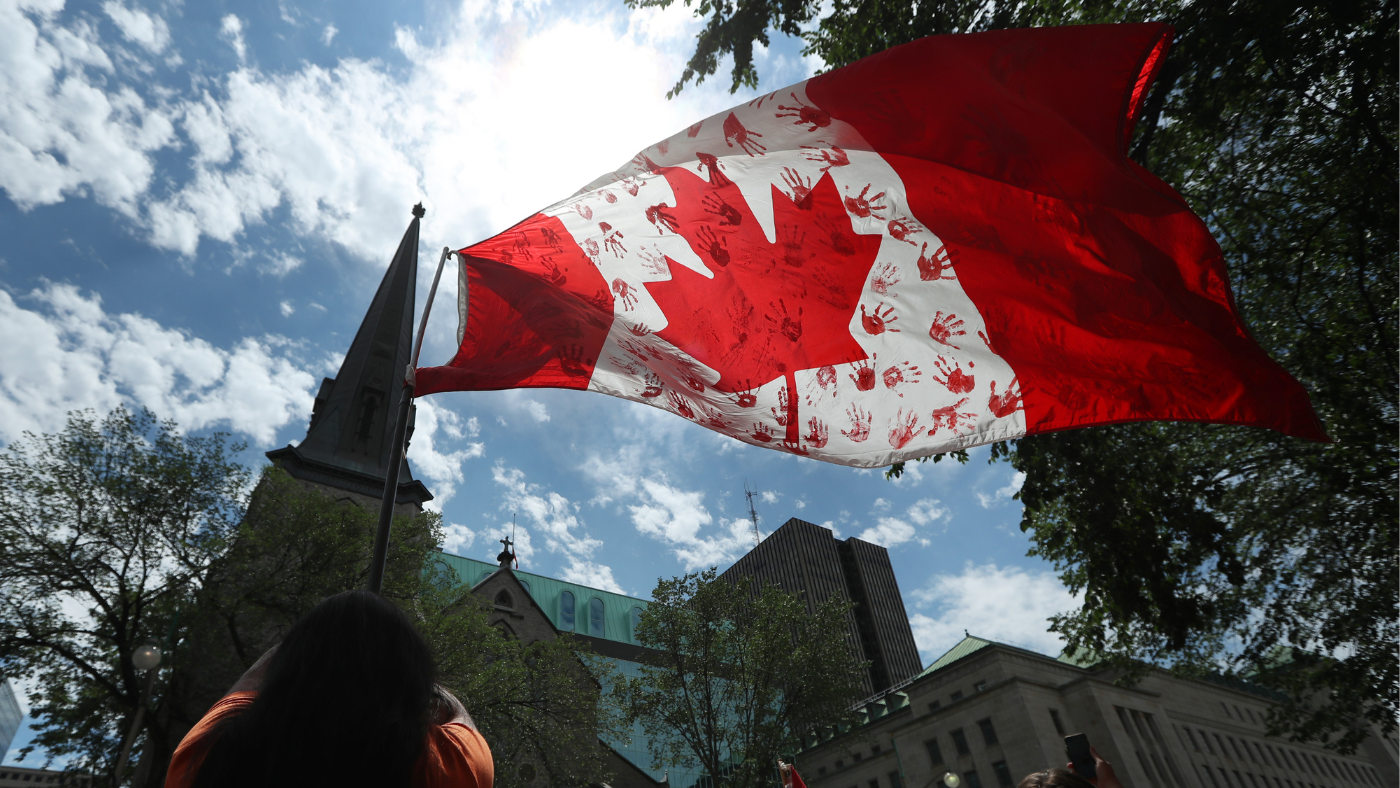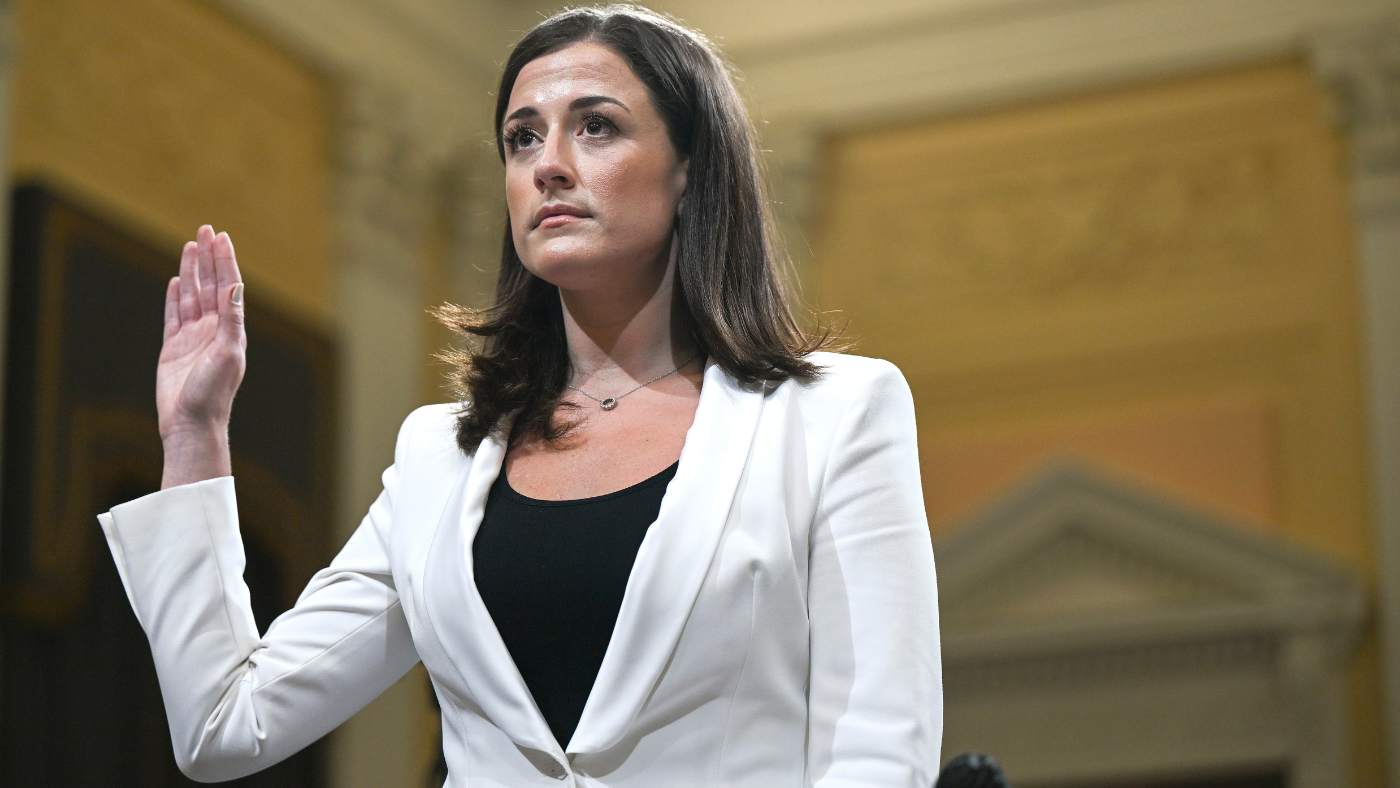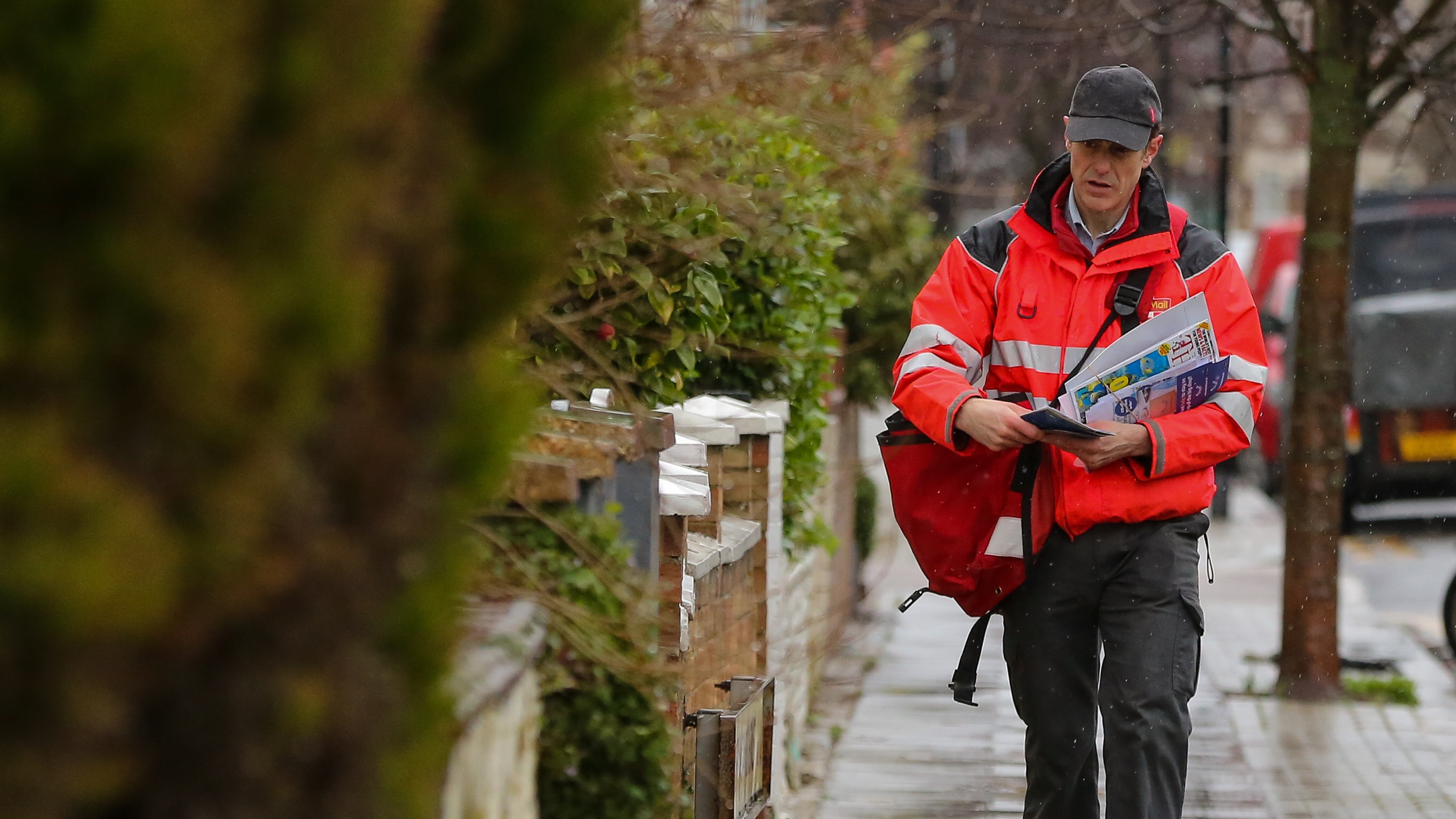‘Dot Cotton was a working-class icon to aspire to’
Your digest of analysis from the British and international press

A free daily email with the biggest news stories of the day – and the best features from TheWeek.com
You are now subscribed
Your newsletter sign-up was successful
1. Dot Cotton: the last great working-class dame
Julie Bindel on UnHerd
on the end of an era
June Brown’s death “ends an era”, says Julie Bindel on UnHerd. Her EastEnders character, Dot Cotton ,”exemplified everything that is superb about British working-class women of a certain generation”. The “chain-smoking… long-suffering mother of Nasty Nick, wore her headscarf with pride”. Not only that, she “wore too much make-up, clutched her cardigan at her breast, and took liberties left, right and centre,” writes Bindel. For “those of us raised by such women”, she was a recognisable “real-life character”, much like “the mothers and grandmothers on the estate” where Bindel grew up. “Female viewers empathised” with Dot, but she was “no martyr”. Women of Dot’s generation and class background “had to be canny and look after themselves, because nobody else would”. Dot’s “wit, warmth and sheer chutzpah made her a working-class icon to aspire to, despite the difficulties life threw at her”. Brown’s passing “might mark the end of representation of these indefatigable grand dames of working class stock”. But these women “are the bedrock of society”.
The Week
Escape your echo chamber. Get the facts behind the news, plus analysis from multiple perspectives.

Sign up for The Week's Free Newsletters
From our morning news briefing to a weekly Good News Newsletter, get the best of The Week delivered directly to your inbox.
From our morning news briefing to a weekly Good News Newsletter, get the best of The Week delivered directly to your inbox.
2. Why Russian atrocities are nothing new
Peter Bergen on CNN
on familiar tactics
The pictures of atrocities in Bucha are “shocking, but are they really surprising?” asks Peter Bergen at CNN. “From Afghanistan to Chechnya to Syria”, Russia’s recent wars have been “characterised by mass casualty attacks against civilians” as well as “credible allegations of the summary executions of civilians” by Moscow’s troops. Human Rights Watch reported that more than one million Afghan citizens were killed during the nine-year war waged by the Soviet Union in the 1980s. In the next decade, atrocities continued “closer to home” in Chechnya. “During their two wars in Chechnya, the Russians flattened Grozny, once a city of more than 400,000 people”, and more than 8,000 Syrian civilians were killed during the more recent civil war. “What we are seeing in Bucha now is the Russian way of war at work,” writes Bergen, “which seems designed to bludgeon civilian populations into submission”. We should “expect to see more Buchas in coming weeks”.
A free daily email with the biggest news stories of the day – and the best features from TheWeek.com
3. The curious case of RS Archer
Ben Sixsmith on The Critic
on digital identities
The Twitter user RS Archer is “a prolific purveyor of ‘fake news’”, writes Ben Sixsmith on The Critic. A novelist living in France, he has 90,000 followers and “is known for his politics”. But there is “no trace of ‘RS Archer’” beyond Twitter, and no “David Saunders” book series, which he claims to be the author of. His “Bondesque profile picture is from a stock photo. The identity is transparently fictional.” But Sixsmith still finds Archer’s “manufactured” character “fascinating”. His “ardently anti-Brexit and anti-Johnson” views are “Remainer wish-fulfilment. Not only do his claims say exactly what middle-class liberals wish to hear, but his whole persona is a kind of seductive fantasy”. Perhaps, says Sixsmith, “there is a bit of RS Archer in all those of us who have acquired any kind of audience on social media”. Yes, we use “real names and our real faces” but many project a “smarter, cooler, funnier and more sophisticated” version of ourselves. We shouldn’t “get hooked on improving other people’s image of ourselves rather than, well, improving ourselves”. Otherwise you might wake up one day, look in the mirror “and see a stock photo gazing back”.
4. Remembering and reliving Easter fun in Lebanon
Angela Zaher on Gal-Dem
on family memories
Easter in Lebanon “was an elaborate culinary feast replete with rituals that strengthened friendship and family bonds”, writes Angela Zaher on Gal-Dem. Whether “young or old”, everyone joined in the preparations. “I still miss the hubbub of those Easters”, with “industrial-scale batches” of semolina-based biscuits called ka’ak wa maamoul. “My mother would plan her baking day meticulously”, and this writer “may have feigned illness to stay at home” and help. Now living in London, Zaher’s “workforce” consists of herself and her two sons. Were her mother to see “how few ma’amoul we produce, I suspect she would feel sad for me and ask if I have any friends”. When she would visit Zaher and her family in London, “she would always remark on how quiet my home is”. This writer has “not been successful” in teaching her children Arabic, and the family has only been able to visit Lebanon “a couple of times in their lifetime so far”. But Zaher has “done my best to educate them about their heritage through these fun food traditions”, all the while “reliving my own childhood, remembering my parents and the happy times we shared”.
5. Prince Andrew’s trying to reinvent himself – but it’ll only work while Queen’s alive
Fleet Street Fox in The Daily Mirror
on another scandal
Future historians “will devote books, doctorates, and entire symposiums to the question of what the hell goes on in Prince Andrew’s mind”, says Fleet Street Fox in the Daily Mirror. “The Duke of York is nothing if not consistent. His only real problem is that he is consistent at making bad choices”, like deciding “not to relinquish his mother’s hand at the Westminster Abbey memorial for his father”. He instead “flaunted the Head of the Church of England in front of a bank of TV cameras”, knowing “his father’s memorial would be reduced to a news item re-upping allegations of sexual abuse”. The Royal Family now “finds itself in the unenviable situation of having paid £7.5million between them to make a scandal go away, just as the Duke of York manages to drive them smack into a new one”, in which he, his ex-wife and his children “are alleged to have been the beneficiaries of a grand swindle”. Why, the writer asks, “would a man who vowed to step away from the spotlight now be so intent on hogging it?” Andrew “seems to be intent on reinventing himself”, and “he can try it” with the Queen at his side. But he’s “underestimated” the British public’s “fury” and “the ruthlessness of the monarchy”.
-
 What are the best investments for beginners?
What are the best investments for beginners?The Explainer Stocks and ETFs and bonds, oh my
-
 What to know before filing your own taxes for the first time
What to know before filing your own taxes for the first timethe explainer Tackle this financial milestone with confidence
-
 The biggest box office flops of the 21st century
The biggest box office flops of the 21st centuryin depth Unnecessary remakes and turgid, expensive CGI-fests highlight this list of these most notorious box-office losers
-
 ‘The UK’s malaise will not end with the Prime Minister’s exit’
‘The UK’s malaise will not end with the Prime Minister’s exit’Instant Opinion Your digest of analysis from the British and international press
-
 ‘Police tactics are not getting worse, they are simply being filmed’
‘Police tactics are not getting worse, they are simply being filmed’Instant Opinion Your digest of analysis from the British and international press
-
 ‘G7 leaders missed a golden opportunity’
‘G7 leaders missed a golden opportunity’Instant Opinion Your digest of analysis from the British and international press
-
 ‘It takes some soul searching to celebrate Canada Day’
‘It takes some soul searching to celebrate Canada Day’Instant Opinion Your digest of analysis from the British and international press
-
 ‘Breakthrough on abortion rights could be there if Biden reaches for it’
‘Breakthrough on abortion rights could be there if Biden reaches for it’Instant Opinion Your digest of analysis from the British and international press
-
 ‘If only Mark Meadows had even half Cassidy Hutchinson’s courage’
‘If only Mark Meadows had even half Cassidy Hutchinson’s courage’Instant Opinion Your digest of analysis from the British and international press
-
 ‘Boris Johnson measures success in biceps rather than brain power’
‘Boris Johnson measures success in biceps rather than brain power’Instant Opinion Your digest of analysis from the British and international press
-
 ‘Asking posties to act as community watchmen is an inspired idea’
‘Asking posties to act as community watchmen is an inspired idea’Instant Opinion Your digest of analysis from the British and international press